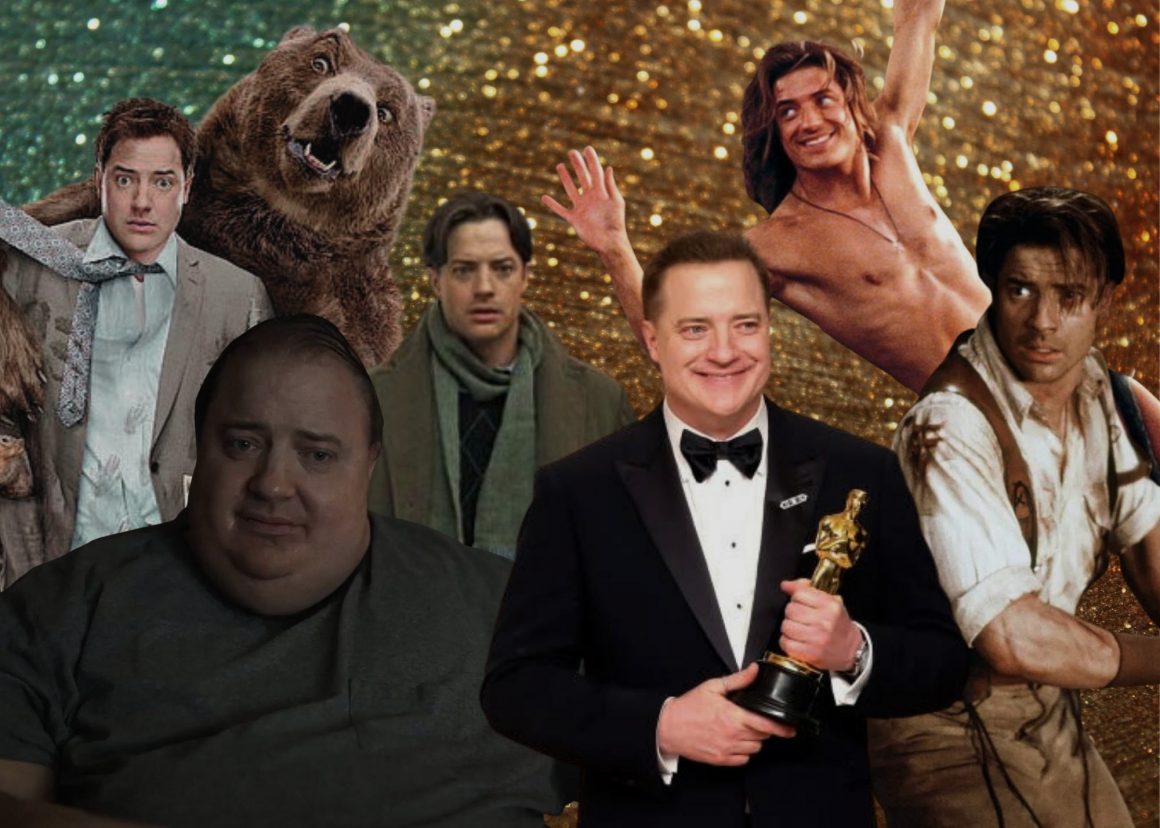
Brendan Fraser’s Oscar win and what it means for male assault victims
By Medina Mohammed, March 28 2023—
Brendan Fraser is an actor that most people will remember from childhood. He is most known for his roles as Rick O’Connell in The Mummy trilogy (1999-2008) and for starring as the titular character in George of the Jungle (1997). In the late 1990s and the early 2000s, Fraser was on track to becoming one of the highest-paid actors in Hollywood. However, his career took a swift decline in the late 2000s due to online ridicule following personal issues, weight gain due to stunt-related injuries, natural aging and his 2003 sexual assault, which Fraser believes led to him being blacklisted from the industry.
Fraser’s decade-long career halt bounced back after an online campaign started by his fans, cleverly called the “Brenaissance,” called for him to be cast in more high-profile roles and projects. Fraser was at the Calgary Expo in 2022, receiving immensely positive feedback from many fans, with one video-of-a-kind interaction with a fan going viral. His most significant achievement in his comeback comes in the form of the highest award someone in the industry can achieve — an Oscar for best actor for his role as Charlie in The Whale (2022).
The concept of being blacklisted after speaking out about an assault perpetrated by an influential figure is not unheard of, and neither is losing work due to one’s physical appearance. In 2018, during the #MeToo movement, many actresses and some actors came forward with stories of their own violations — either assault or harassment — by producers, directors, photographers and many men in positions of power. In the same year, 2018, Fraser came forward with his story of assault and accused Philip Berk, the then-Hollywood Foreign Press Association (HFPA) president, of touching him inappropriately. Upon going public with the allegations, HFPA conducted an internal investigation and concluded that the advance was meant to be “a joke.” When asked to sign a non-disclosure agreement, Fraser responded to HFPA by saying, “I don’t get the joke.”
At the time Fraser was assaulted, he was at the peak of his career and was around 35 years old. From the time boys are aged five or six, they are watched equally as carefully as their sisters are for signs of any sexual misconduct or predatory behaviour from others. By the time they are teenagers, the caution has been dropped, and instead, they now watch out for their sisters, girlfriends and female friends. More often than not, there is a narrative that men cannot be assaulted. Men are the ones in control, and men are the perpetrators. It is a fact that women are disproportionally affected by sexual violence, with men being the majority of the offenders, but society fails to acknowledge that men can also be victims of sexual assault and harassment.
Any kind of assault or violation towards men is treated like a joke by men. Men have been socialized to believe that something such as sexual harassment cannot happen to them. They are the ones in charge of their bodies. They are strong, they are brave, and most importantly, they are not victims. For men, the concept of being violated is treated as a joke.
Fraser’s Oscar win, and the circumstances of his win, have a significant impact on the way society views and treats male sexual assault victims. At the time of Fraser’s assault in 2003, the reaction by HPFA was typical of its treatment of any victim brave enough to speak out to blacklist the victim. The online ridicule of Fraser was not directly related to his assault. The ridicule he had garnered was the result of his mental state following the assault, which led to his changed physical appearance.
The online ridicule speaks more to the issues of beauty standards that society applies to men, and more so to men in the public eye. Fraser’s “Brenaissance” is the response to the #MeToo movement and the impossible beauty standards of Hollywood. For male victims, this win shows recognition that sexual assault can happen to men, no matter how high profile they are, and that they are not alone.
In the speech following his win, Fraser tearfully recounted how he had taken his career for granted until his work stopped coming. While his exact situation is not something the everyday person may face, Fraser is a beacon of hope. His best actor win is a significant step forward in recognition of assault victims and, more specifically, male sexual assault victims. This win is a step towards breaking the stigma.
This article is a part of our Voices section and does not necessarily reflect the views of the Gauntlet editorial board.
